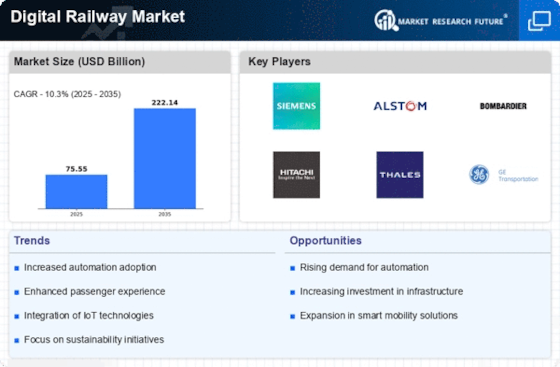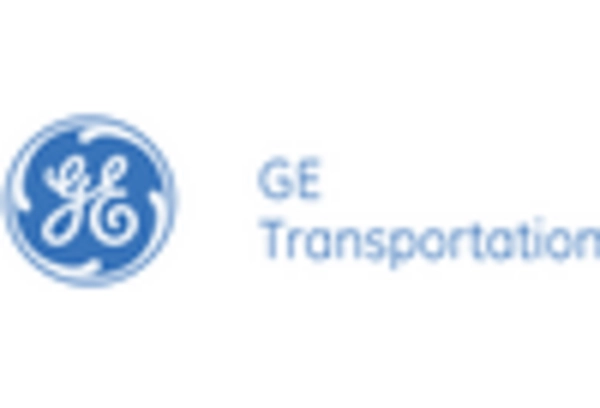Market Analysis
In-depth Analysis of Digital Railway Market Industry Landscape
Various market factors are reshaping the landscape of Digital Railway Market thus driving its digitization process within railway industry for example; However there are some main factors which drive this change rapidly including the need for safety and efficiency improvements among them. Through digital technology, advanced signaling systems, automated train control and predictive maintenance can be implemented by railways to reduce accidents and increase safety levels across rail transport modes. On the other hand such technologies as well enable more efficient operations optimizing train schedules and reducing delays thus enhancing the reliability of rail services.
Moreover, the demand for improved passenger experience is a significant market factor. With regards to this, current innovations in the digital railway industry include real-time passenger information systems, onboard Wi-Fi and mobile ticketing that have enhanced traveler’s overall journey experience. Consequently, passengers receive most recent details about train schedules, any delays or other necessary data which makes their trip less uncomfortable and easier. Satisfying clients with services is very important since it keeps them coming back again hence maintaining high competition rate within transportation market.
Another market factor in the digital railway space is smart infrastructure implementation. The use of Internet of Things (IoT) devices and sensors allows for real-time monitoring of rail assets, tracks, and components. This approach ensures proactive maintenance by addressing issues before they result in disruptions as well as moves towards more use of a digital twin system where railway operators develop virtual replicas of physical infrastructure to aid in better planning & decision-making processes to name a few. The smart infrastructure adds on to longevity and dependability in railway systems.
Expansion in the digital railway market is influenced by a growing interest in sustainability. Governments and railway operators are increasingly becoming more aware of their environmental responsibility, which they are keen on reducing the pollution caused by transport systems. Sustainability goals can be achieved through digital technologies that facilitate efficient use of energy, fuel saving as well as reduction of emissions. This is because intelligent traffic management systems allow optimization of train movements, minimize power consumption, and promote eco-friendly practices within the rail industry.


















Leave a Comment